When Britain built Constanta
02 Dec, 2010 12:44
2804
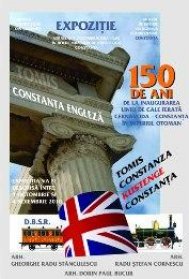 I was in Constanta last week for a exhibition at the Museum of History
and Archeology entitled ‘British Constanta'. This describes the history
of the British Danube-Black Sea Railway company which was the first to
build a railway between the Danube at Cernovoda and the port of
Constanta on the Black Sea in 1860. In fact, this was the first railway
on the territory of the Ottoman Empire and was passed to the Romanian
state after independence.
I was in Constanta last week for a exhibition at the Museum of History
and Archeology entitled ‘British Constanta'. This describes the history
of the British Danube-Black Sea Railway company which was the first to
build a railway between the Danube at Cernovoda and the port of
Constanta on the Black Sea in 1860. In fact, this was the first railway
on the territory of the Ottoman Empire and was passed to the Romanian
state after independence.
The original plan was to build a canal between the Danube and the
Black Sea, but the company's directors decided this option would be too
costly and time-consuming. They were anxious to meet immediate demand in
the UK for Romania's grain exports, following the famine in Ireland. So
they invested some fifteen million pounds in the construction of a
railway instead, and they built it in two and a half years. They
appreciated the enormous commercial potential of Constanta port, and
built a new
harbour that could manage large-scale commercial traffic not just local ships. They even issued their own postage stamps for letters and parcels carried on the railway.
Constanta
enjoys the same advantages today. The port is now the fourth largest in
Europe. It has huge silos which store those same grain exports that
were so attractive to investors in the past. But the port also boasts
facilities for loading chemicals, petroleum, oil and all sorts of
container traffic. Its full potential will be realized when it has the
infrastructure in place to connect it properly with its hinterland - the
completion of the railway and road to Bucharest and further development
of navigation on the
Danube. British companies are keen to invest in
these projects now, just as they did 150 years ago. I met the Transport
Minister on my return to discuss the opportunities.
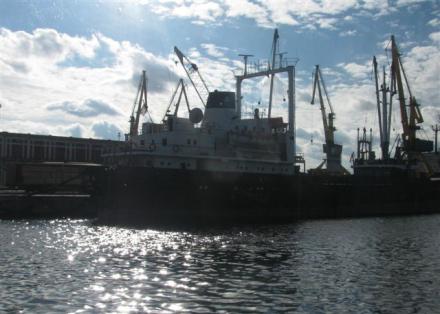 Many
thanks to George Stanculescu, the architect behind the exhibition and
the Director of the Constanta History Museum Gabriel Custurea, plus his
colleagues, for putting this fascinating exhibition together. When
Romania's national poet Mihai Eminescu visited Constanta he stayed at
the ‘Hotel D'Angleterre'. When I visited I felt there was a piece of
‘Angleterre' right here on the Black Sea, a tradition we can build on in
the future.
Many
thanks to George Stanculescu, the architect behind the exhibition and
the Director of the Constanta History Museum Gabriel Custurea, plus his
colleagues, for putting this fascinating exhibition together. When
Romania's national poet Mihai Eminescu visited Constanta he stayed at
the ‘Hotel D'Angleterre'. When I visited I felt there was a piece of
‘Angleterre' right here on the Black Sea, a tradition we can build on in
the future.
Martin Harris, UK Ambassador to Romania
Source: British Embassy
Ti-a placut articolul?
Articole asemanatoare

Concurs de angajare la Universitatea Maritimă Constanța. Cine face parte din comisia de examinare
21 Dec 2022 2382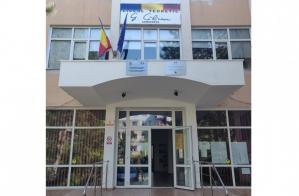
Liceul Teoretic „George Călinescu” organizează sesiunea de examen IELTS Academic în luna mai
12 Apr 2022 1383_thumb2.jpg)
Liceul Teoretic „George Călinescu" din Constanța, premiat cu trofeul Cambridge Assessment English
08 Oct 2021 2097
Oxford Test of English – cel mai „smart” mod de certificare a competențelor în limba engleză – acum și la Constanța
02 Apr 2021 2671
Ce rase de câini și-au schimbat forma de-a lungul ultimilor 100 de ani (galerie foto)
07 Aug 2016 7180



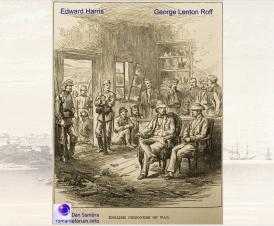
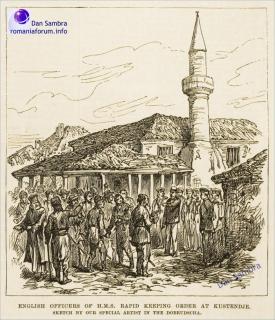

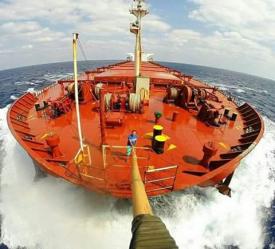
Adauga un comentariu
Nume:
Email:
Comentariu*: